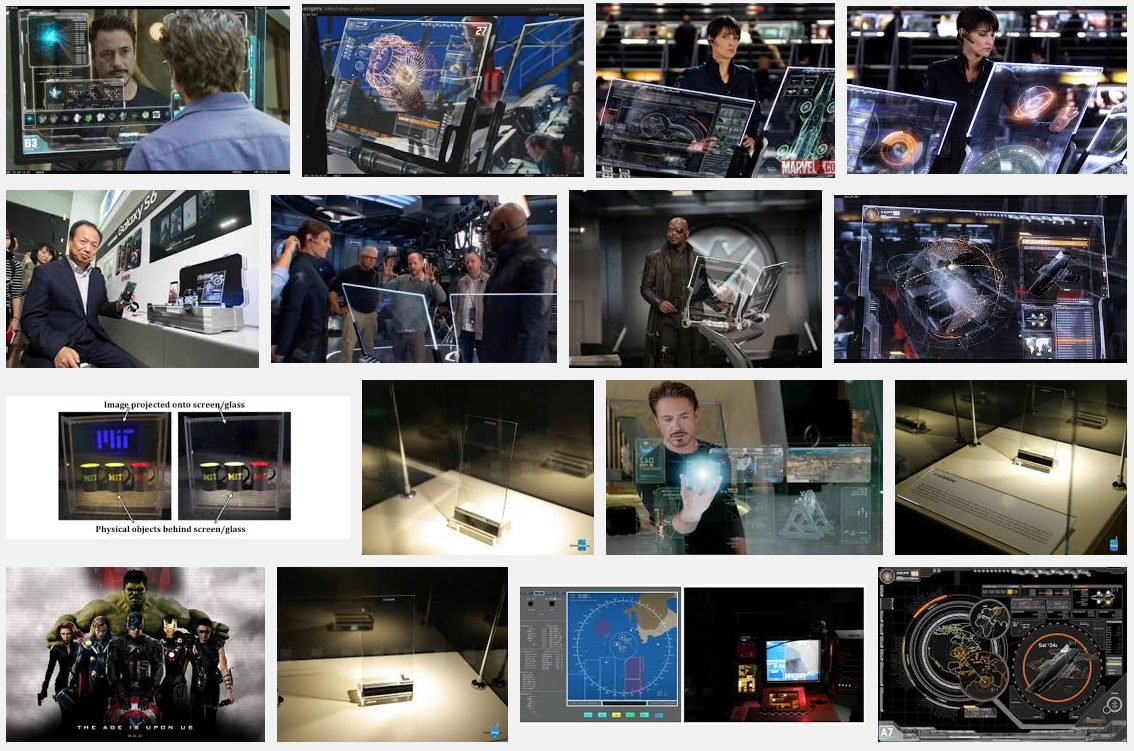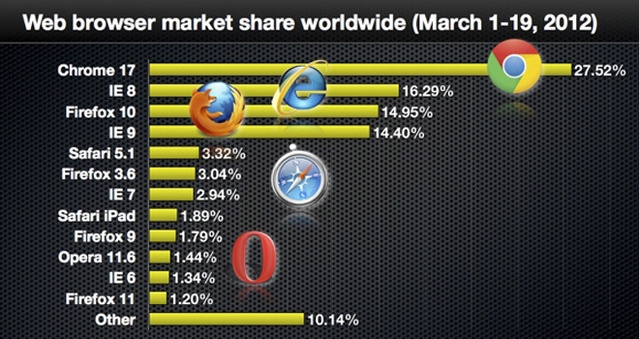Tag Archives: Google
Bing does Halloween Right
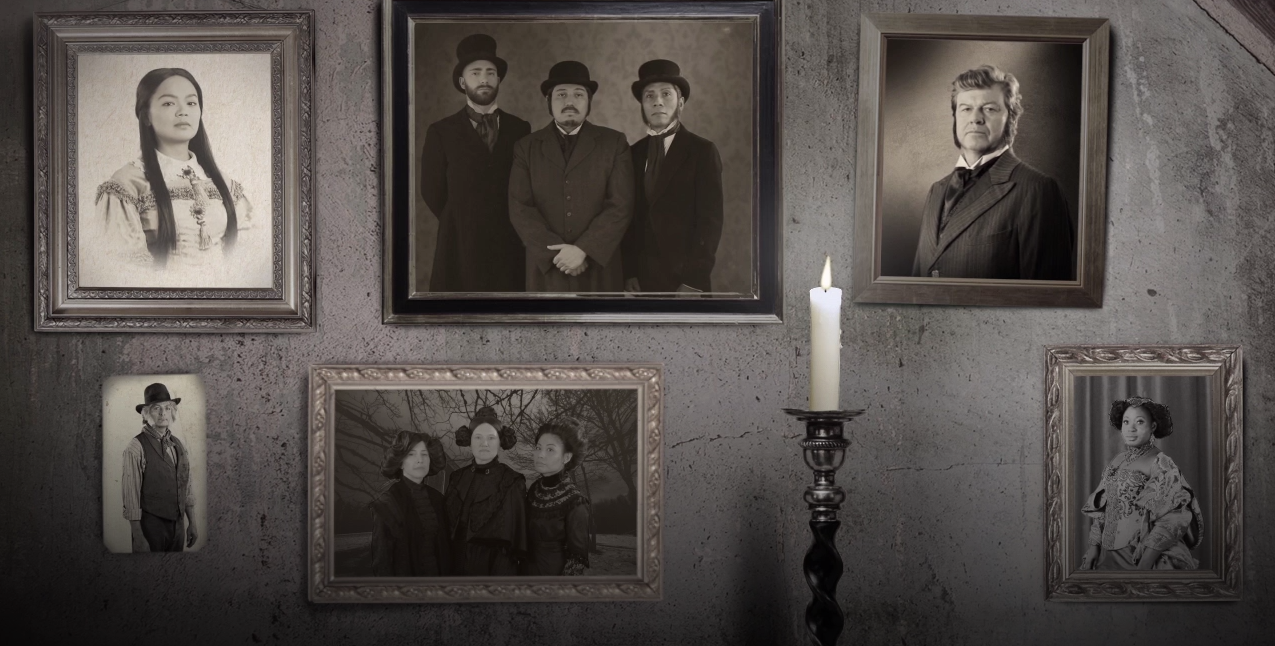
Everyone knows I am a big fan of Microsoft. I always have been, even when their products were of questionable quality; what can I say, I like the company. But now, their products are masterfully designed and fully capable, a pleasure to use. Never mind they come with pricing to match, something that was once the sole domain of Apple (as were those other qualities, ahem).
Even so, I am not here to extol the virtues of Microsoft’s products or even software. No, I am here to compliment their masterwork on one of their services that, sadly, is often targeted for derision: Bing. Fan I am of Microsoft, and user of Bing, the fact is it simply doesn’t provide strong results when I do a search. It will give me results that are ten years old, not relevant to what I’m asking, or just plain bizarre. I’m no fan of Google, but I will say they do search better. So you’ll understand my elation when I can finally give Bing high praise for easily blowing Google out of the water at something search related.
Well not search related per se, but more their search page. This year, for Halloween 2017, Bing absolutely nails what a Halloween page should be, and destroys Google’s feeble video in the process. Score one for Bing! Their (almost) fully interactive homepage shows living portraits hanging on a staircase wall, and most of them have, shall we say, a unique personality when you click on them. You can view the page at any time of year by following this link, however if for whatever valid reason you have an aversion to Bing, you can also see it in the video below. Well done Bing! The fact you do Halloween right makes up for all the ineffective searches I’ve done with you over the prior year.
(I tried to research how specifically this page was created but found nothing. Probably because I searched on Bing. Still, I love the page, and I’ll always be a fan, Microsoft!).
Come on Bing, step it up
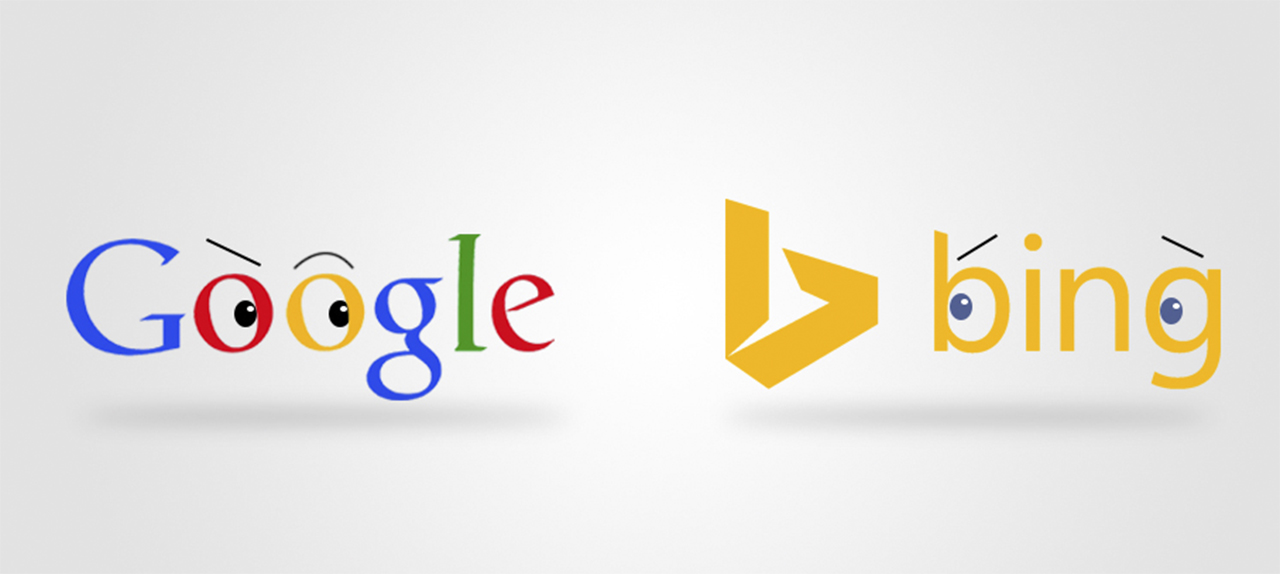
Everyone knows I am a big fan of Microsoft, and I am especially happy with the direction the company has recently gone; releasing their Office suite on Android and even iOS, innovating with their Surface and SurfaceBook line, I even loved their Windows phone, although I recently had to give mine up, and of course the HoloLens. I have experienced it, and it’s pretty incredible.
That also means I use Bing. Not just for the rewards program it has, which is pretty nifty, or for the nice pictures it has on its main page, and certainly not for the results which are often years old and barely relevant. No, I also use it as a form of rebellion. Bing is like the kid who’s not as popular as the other kids, but it’s because he doesn’t care that actually makes him more cool. If the others are more popular so be it, Bing does its own thing its own way.
Don’t get me wrong, I use Google a lot. But I do that because I have to. You see, although I’m a big Microsoft and Bing fan, the fact is their results just don’t work out all that well for me. The biggest problem I have with Bing results is that they are rarely timely. They are, almost always, from at least seven years ago, even for tech based results, and seven years can be a lifetime in terms of technological development. I don’t know what Bing’s obsession is with providing me results from 2009.
Other times, I’m not sure what to think.
I was reminded of this while doing an image search for the post below regarding transparent screens. I was looking for images of transparent screens being used in movies, and I typed in “Avengers transparent screens” and “Avatar transparent screens.” The results were remarkably different, and remember that this was an image search. Below, I have posted a screencap of the image-search results from Bing, and then again from Google. Whichever you prefer, it’s pretty clear whose search algorithm is giving the most relevant results.
For the image search “Avengers transparent screens,” here are the results from Google (Top) and Bing (Bottom).
For the second example, I carried out the image search “Avatar transparent screens,” and as above, here are the results from Google (Top) and Bing (Bottom).
I prefer the photo layout of Bing, and how if you scroll up in the search results the search bar automatically appears, however the results are clearly quite different. It sometimes provides accurate results, but I was shocked by how off the mark this was.
Strangely, I was unable to find any scholarly research comparing the two engines and their results, however I did find this article from 2011 showing, via Internet research firm Hitwise, that Bing’s results are more accurate than Google, whereas a more recent Lifehacker article from 2015 crowns Google the champ but not by an overwhelming margin. There seems to be no clear winner (I did notice that a Bing search on who is the better search engine overwhelmingly returned results favoring Bing, whereas Google was more neutral). Ironically, if you search “Bing Google” in Bing, the first result is Google and the second is Bing.
This is clearly not a comprehensive evaluation of search results, it is merely something I noticed while writing my previous post. Bing does give relevant results quite often, and I prefer how it presents results of certain focused searches by providing relevant info or data (time, scores, definitions, flights, etc.) right at the top, and its Santa-tracking on Christmas is second to none. I suppose I’ll just have to keep using both.
Unsend that unfortunate email

It turns out the word ‘unsend’ isn’t an actual word, but it might become one soon. Google is introducing long-functional but until now experimental functionality for Gmail that lets you recall an email before it is actually sent.
Some history: Google used to have a tab in Gmail known as Google Labs, where they would make available all sorts of experimental Gmail functionality ideas that their coders and designers were allowed to work on in their spare time. They were never made official, but people could try them out if they liked. It was closed down almost five years ago, however they had some neat stuff, my favorite being a plugin that used an ingenious method to prevent you from sending emails while inebriated, which would likely end in huge amounts of regret and apologies: When you hit send, you had to work out a mathematical problem before the email would actually send. The difficulty of the problem could be set by the user, and if you couldn’t work out the problem in a set time the email wouldn’t send. Brilliant. Also, full disclosure, I think it’s ingenious because it is, not because I ever had to use it (I don’t drink, so when I do something dumb I have no excuse).
Google is now implementing the big brother of the drunk email-preventer, one that lived in Google Labs for six years, known as “unsend.” The user can set a desired timeframe from a few seconds to 30 seconds, and during that time the email won’t send, giving the user time to stop the email from sending. There are many reasons someone may want this, just let your imagination run wild. (Not that wild, maybe you just neglected to attach a file!)
You’ll have to enable the function as it won’t be a default option, and now that it’s an official addition to Gmail, I suspect that other web-based email services will be offering it in short order.
Google, Mattel give us the ‘new’ View-Master
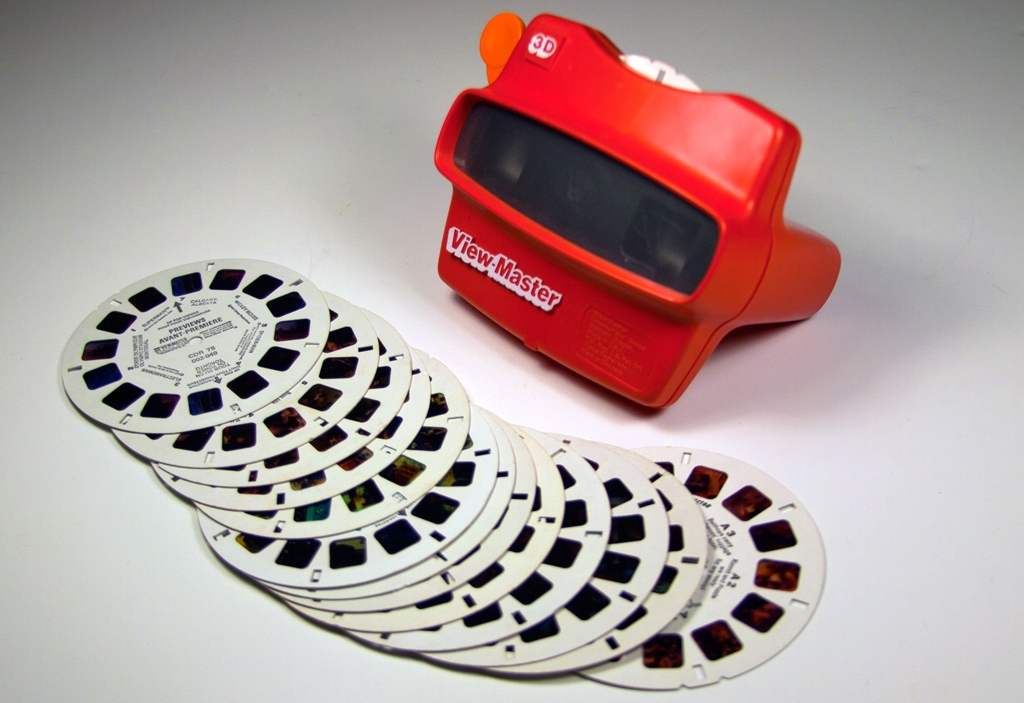
Remember View-Master? If you’re, uh, ‘younger,’ you may not, but if you’re my age you definitely will. First making an appearance around 1940, The View-Master was an odd, sort-of binocular-looking thing that had a slot in the top. into which you would insert a paper reel that had pictures of cities or illustrations for books among other things. They would have a 3-D appearance because you would view two of the fourteen images at a time, meaning each reel had seven images. By pushing down a lever, the paper reel would rotate to a new set of images. At one point it was used to train soldiers in how to identify enemy vehicles!
While it, like everything, has a collector fan base, the device fell out of popularity around 1997, although it is in the Toy Hall of Fame.
European Union wants to break up Google
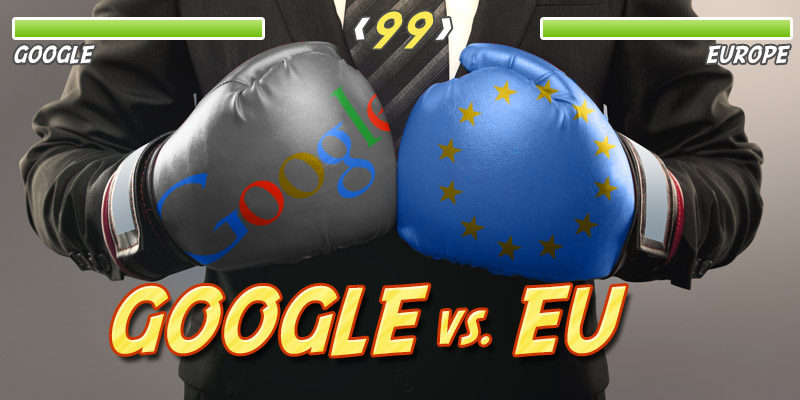
Those of us who were around in the 90’s may remember when Microsoft became subjected to lawsuits by competitors and even governments because of what was perceived as their monopoly status, their aggressive tactics in maintaining that status, and their stranglehold on the PC market, which was an issue of their bundling of Internet Explorer with their OS, and their use of Media Player. Speaking of the European Union specifically, they have sued Microsoft again and again and again. Of course, Microsoft can give it as well as take it.
While I always understood the concerns and the actions taken, I always felt the relentless pursuit of Microsoft specifically was uneven in the tech industry, when other companies were dominant in other areas, such as AOL / Time Warner. It wasn’t as though people couldn’t download other browsers, and the concern about browsers is long over with all of the options available.
Google raises Turing Award prize to $1 million

So much comes together with this announcement. The Turing Award, created by the Association for Computing Machinery (of which I’m a member, full disclosure) is the equivalent of the Nobel Prize for computer science. Founded in 1966 and valued at $250,000, it has been awarded for advancements and developments in all areas of computer science, from programming achievements to hardware to OS design and development, although it tends to skew towards methodologies and programming, which is understandable; it is a computer science award after all.
Previously jointly-funded by Intel and Google at a value of $250,000, Google has taken over the award funding after Intel ceased involvement and raised the value to $1 million. Considering the impact technology and computer science have in our lives (and the Alan Turing-based Google Doodle they created for his 100th birthday; do those numbers look familiar?), I think it’s about time, and it puts the Turing Award in league with the Nobel Prize, although the financial award for that fluctuates.
Bing!
Before you read this, go visit Bing then come back. If you are reading this after Thursday, July 3rd, click on the little ‘left arrow’ in the lower right corner of the Bing homepage until you get to the panda to see what I’m talking about.
So as I mentioned in class, while I have nothing against anyone having a favorite company, to direct undue hate or vitriol against their competitor is unnecessary. I like all companies equally for what they contribute, and I’ll castigate any company if I feel they’ve gone the wrong direction. That being said, one of the services that seems to get a lot of ridicule is Microsoft’s Bing. If you’re unfamiliar, Bing is Microsoft’s search engine, a competitor to Google. No one bats an eye if they they hear the phrase “Google it,” there’s even a webpage that will do it automatically, but if someone says “Bing it” they risk getting beaten up.
I personally use both. Bing – in my opinion anyway – is better in some aspects such as image, travel and technical searches, while Google is better for pop-culture, academic and news searches. In the interest of full disclosure, when I took the Bing-it-on challenge, Google won hands down. It was a rousing defeat of Bing.
Even so, what I like most about Bing is their homepage. Google has always prided itself on its superlative user interface, which has since the beginning consisted of not much more than a search bar – or has it? When it was released, it competed with disasters like Alta Vista (which now looks a lot like Bing, surprisingly enough), Dogpile, and Yahoo, which made it a breath of fresh air.
Bing is similar, however it includes a usually stunning image as its background, with hotspots that provide additional information about the picture. Back in 2011, though, they started occasionally animating their backgrounds using the HTML 5 specification, and some of those animations have been spectacular. The collapsible, filmstrip-like news stories along the bottom are a nice touch as well, although they are sometimes entertainment-heavy in their stories.

In this recent image from the Bing homepage, you can navigate around the mountains. it’s still available if you click on the little ‘left-arrow’ button in the lower right of the page a couple of times.
I mention this because for all the hate and ridicule it gets, it’s not a bad search engine, and I have had just as much difficulty with Google providing me relevant results as I’ve had with Bing. One isn’t better than the other, they are just different, and on Tuesday we’ll find out why. You want to be careful not to dismiss something simply because it isn’t Google, or isn’t Microsoft, or isn’t Apple, or because it is.In the future I’ll be talking about alternative web browsers you can use, alternative operating systems you can use, even alternative search engines you can use. In the meantime, animated pandas!

